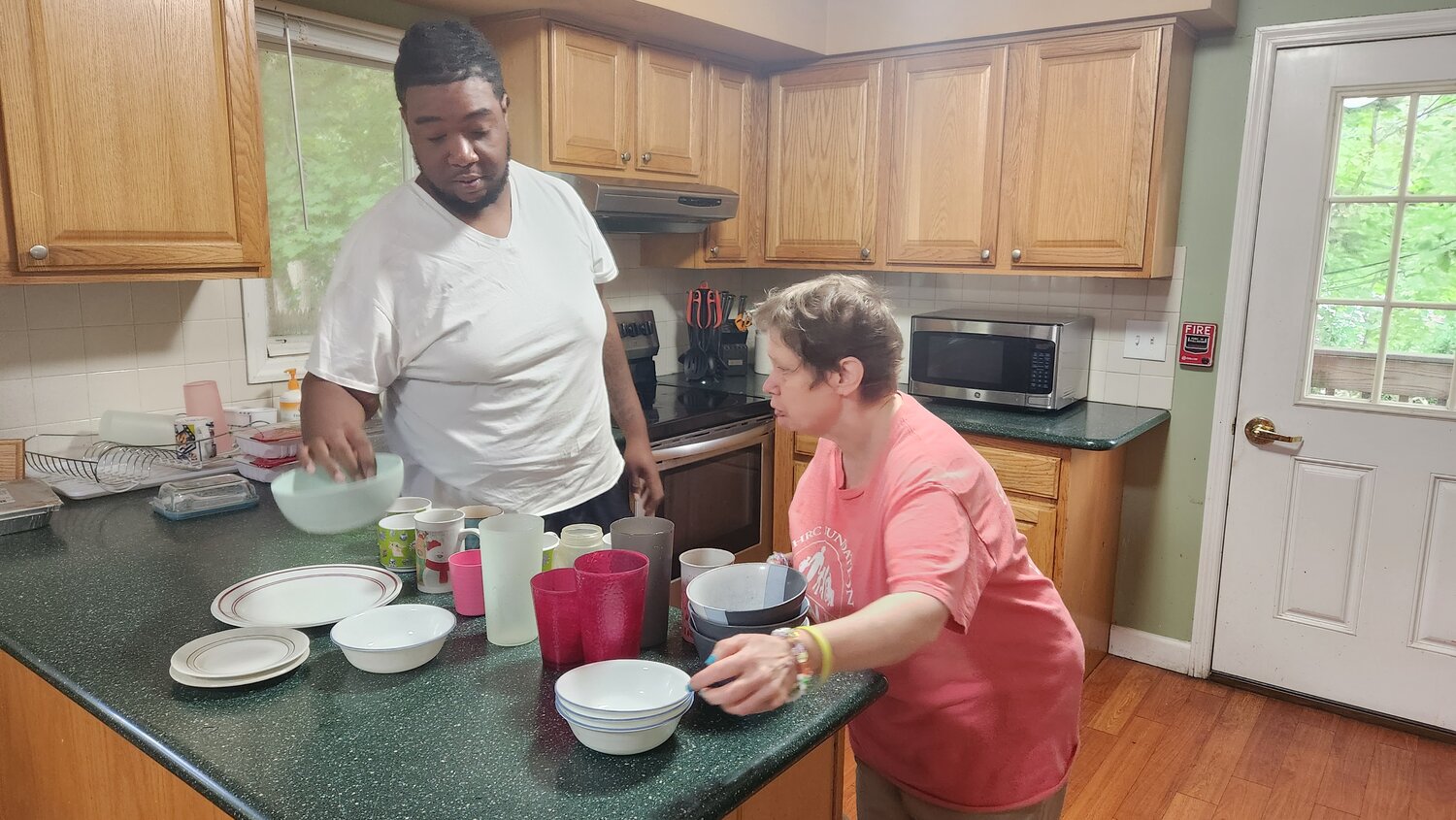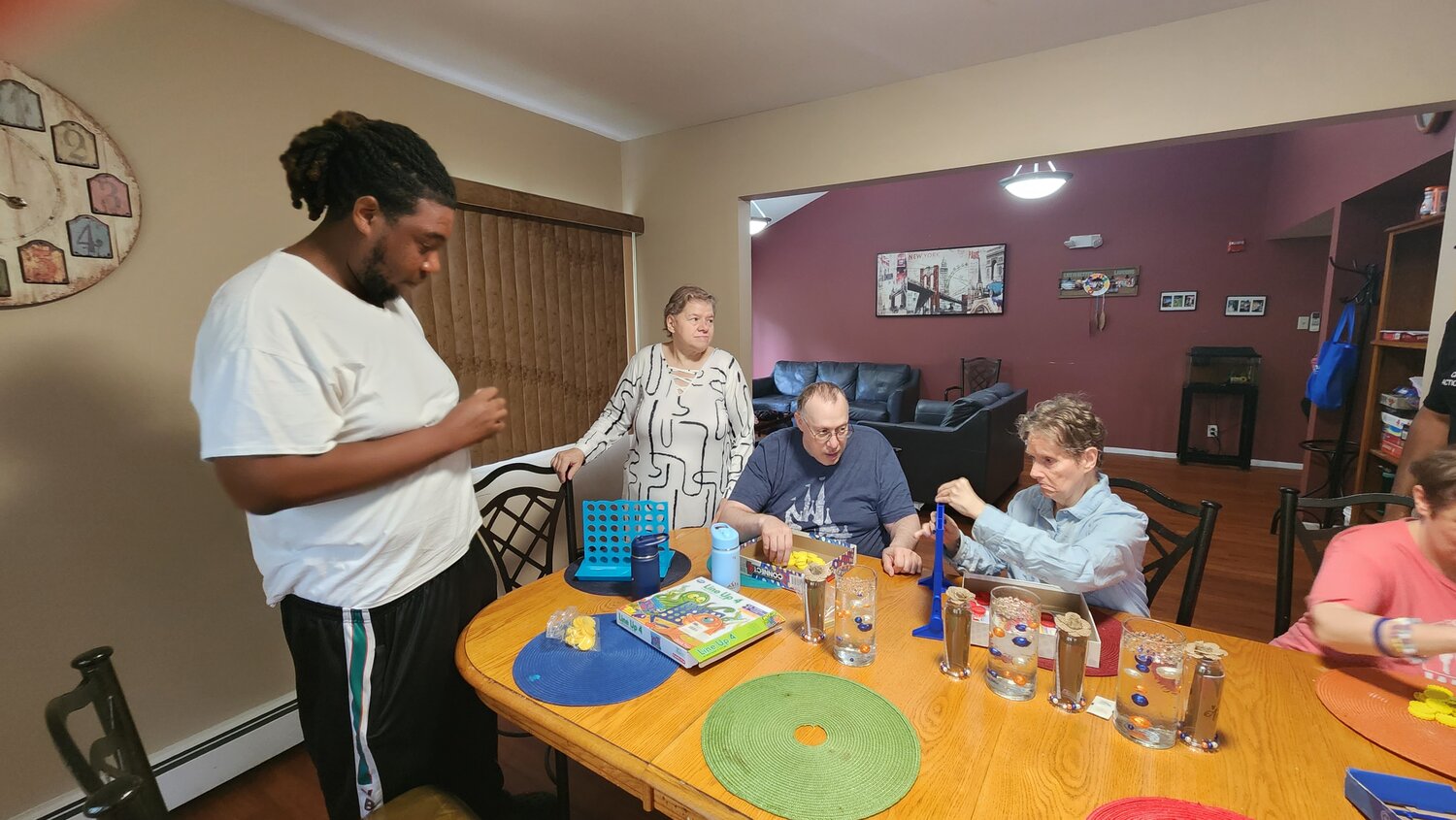Essential workers need a living wage
Juon Hodge, a direct support professional with AHRC Nassau, an organization that provides specialized support for adults with developmental disabilities, works at the organization’s New Woods Road residence in Glen Cove. He began his role with the Glen Cove home nine years ago, thinking it would only be a temporary part of his life. But, like many others in his position, he grew attached to those he cared for, and formed a family bond with his colleagues and residents.
Although Hodge works in a field he loves, his pay at AHRC doesn’t cover his life expenses. The Lynbrook native starts his day at 5:30 a.m. and commutes to his second job working for the parks department for the Town of North Hempstead. At 2:30 p.m., he commutes from Westbury to Glen Cove and finishes his shift with AHRC Nassau at 11 p.m. He gets home around midnight and prepares him to start the same day again five-and-a-half-hours later.
“We’re working at this point just to survive even with two jobs,” Hodge said. “I feel like with one job, we should be homeowners, but with the two jobs, I couldn’t be a homeowner today if I wanted to.”
It takes a lot of energy to be a DSP like Hodge, especially since both of Hodge’s jobs are hands-on. When he works for the Town of Hempstead, he mows lawns, picks up trash and repairs fences and equipment on playgrounds. When he arrives to work in Glen Cove, he distributes medications, cooks, and cleans the home. He also escorts the residents to doctors’ appointments or nearby parks to enjoy fresh air.
Despite the high demands of the job, DSPs currently earn only slightly more than minimum wage. Statewide, reimbursement for DSP salaries has increased just 1.4 percent per year over the last eight years. Despite the high demands of the job, DSPs currently earn on average between $15 and $17 per hour.
For the past 7 years, advocates from AHRC Nassau and its sister agency, Citizens Options United, have been advocating for the creation of a standard occupational classification for DSPs, which they say is foundational to ensuring people with disabilities have access to critical supports and services. This advocacy was centered on the Bureau of Labor Statistics opening applications for new job classifications. Disability advocates applied to have DSPs included, but were unsuccessful. The “Recognizing the Role of Direct Support Professionals Act” now in Congress is a way to bypass the next application period.This would help the federal government collect data on demographics and turnover rates. This, in turn, would help inform policies to address the workforce shortage.
Christine Basile, the residential manager at AHRC Nassau home on Red Spring Lane in Glen Cove, has worked for AHRC Nassau for 25 years. She believes increasing wages for DSPs would make a significant change in the lives of people with developmental disabilities.
“Can you imagine getting married 30 times in one year, or changing friends 40 times in one year? It’s an exceptional loss to the people in our programs,” Basile said. “When people leave, the residents feel it, and the parents feel it, too. People need staff they can trust.”
Taiwan Verene, the residential manager at the New Woods home in Glen Cove, said one thing about the DSPs is there are so many instances when they put the needs of the people they support before themselves. Somehow, DSPs blur the lines to do what’s needed for the residents first before they consider their work—life balance.
Hodge said he and many others feel as though their pleas for wage improvements have gone unheard for too many years.
“I feel like they don’t see it as we have a life, but we want to own homes. We have dreams too and we have things that we want to do too,” Hodge said. “I feel like everyone, that I know that works in this agency either work here nonstop or they have two jobs. I know people who work in this agency that barely sleep at their own house because they’re here during night shifts.”

 50.0°,
Overcast
50.0°,
Overcast 







